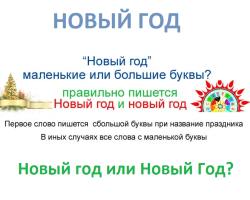What does “power over yourself”, “enslavement of your own passions” mean? The work gives their own reasoning and an example from literature.
Content
This statement belongs to L.N. Tolstoy and touches on the problem of self -awareness and human behavior. Management of your thoughts, emotions and actions, in other words, self -control is the basis of the social life of people and the way of establishing interpersonal relations.
What does it mean to have “power over yourself”?
A person, limited by the framework of decency, morality, public opinion, still has a certain measure of freedom in his actions. Control over your own life can only be a strong personality.
- A weak person is affected by the environment and often becomes a hostage to someone else's will or his own vices. Such people are alcoholics, drug addicts, players, in search of momentary satisfaction of desires destroy their lives, believing that they live, enjoying freedom.
- The ability to control yourself is management of your behavior in accordance with generally accepted laws. Methods of self -control are formed in the process of learning, social interaction and develop throughout life. Important factors affecting the formation of personality are moral principles, public opinion, self -awareness and will of a person.
What is the concept of “power over yourself”? This is the ability and ability of the person to express and exercise his own will. In this case, self -control and management of their own desires is implied.
- Passion for something is a feeling or desire prevailing over all others. Submission of one’s own passion, inability to cope with its weaknesses creates a person’s dependence.
In any undertaking, one who is able to defeat himself over himself - his own laziness, greed, fear, attempts to avoid difficult paths achieves success and internal satisfaction. Throughout life, a person must improve, becoming better than himself the same.

An example from literature
The problem of human struggle with his own passions is revealed in many literary works. One of the most important points in them is the internal personal crisis of heroes.
A striking example of the importance of this topic is the novel by the Russian classic F.M. Dostoevsky "Crime and Punishment." During the narrative, we observe the mental experiences of the protagonist.
- At the beginning of the novel, Rodion Raskolnikov is a simple student living an inconspicuous and modest life, he is enough for him what he has. Thinking about the needs of the people around him, he comes to the idea that he can control life according to the theory invented by him about the purpose of people.
- Suffering from his humiliation and inability to help loved ones, crushed by poverty and impotence, the hero decides to kill. The old proprietor, in his opinion, benefited from human sorrows and was not worthy of life.
- Having committed a crime, Raskolnikov came to the collapse of his own beliefs. Those tormented by his deed, he underwent spiritual torment and was in deep depression. Only with the help of Sonya Marmelado was he able to overcome internal contradictions and rethink his own views.
- Love for Sonya reveals for Rodion the path to reconciliation with life through the revival of faith in himself and the search for the further meaning of life. The victory of the hero over himself and his internal disagreement is the main idea of \u200b\u200bthe work.
In relation to any person, regardless of his age and social status, one can rephrase the classic: power over oneself is not the highest power, but real happiness.

If you learn to control yourself, control your inner world, control thoughts and emotions, reasonably assess the situation, analyze, draw conclusions and continue to constantly improve, you can gain true personal freedom and a sense of harmony with the world around you.








But what about the will of the Lord?